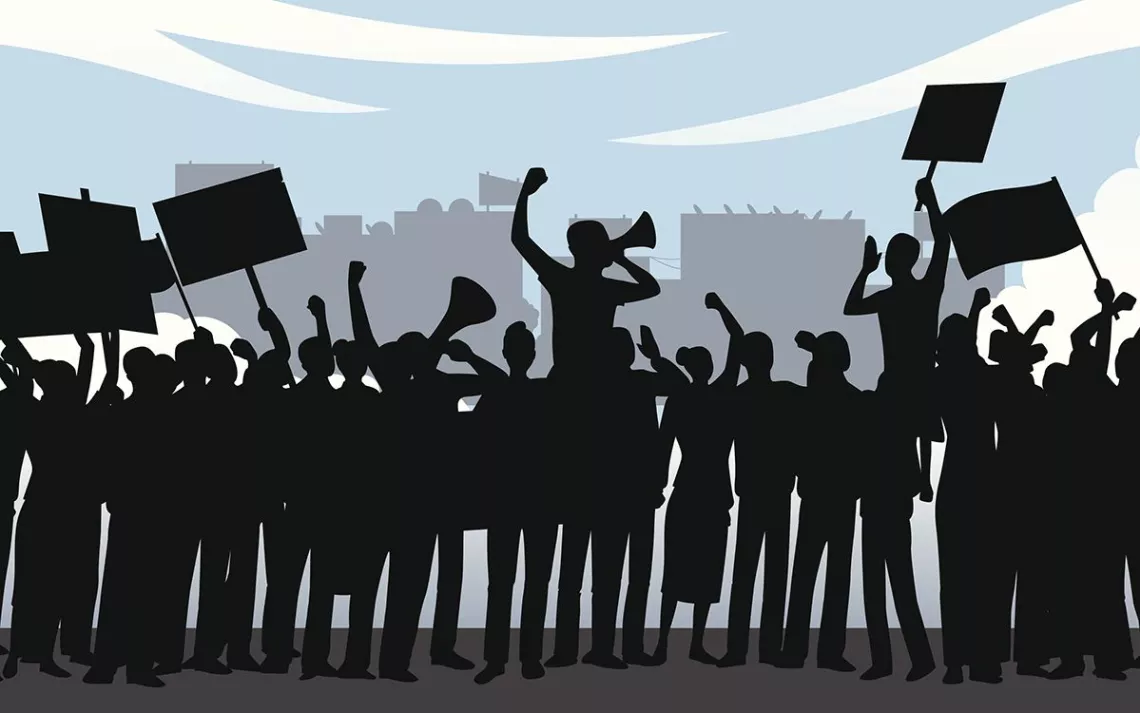My Kids Will Skip School This Friday. Here’s Why I'm Letting Them.
Young people are getting mad about the threat of climate change
As a parent, I spend about 60 percent of my brain power each day solving mundane problems: What should I fix for dinner? Do I need to stop at the grocery store? Did I fill out that permission slip? Did my kids really do their homework or just say they did?
The rest of my mental capacity goes toward guarding against immediate threats to my children’s well-being. Are they eating too much sugar? (yes) Getting too much screen time? (yes!) Falling behind in school? Being bullied? Staying healthy? Like most parents I know, I would throw myself in front of a bus to save my kids.
In fact, there is a bus barreling toward them, a threat far more menacing than most of the parenting problems that usually preoccupy me. Last October, the Intergovernmental Panel on Climate Change issued a report saying that we have 12 years to completely transition society off fossil fuels or else face cataclysmic, life-destroying, runaway climate change. But global greenhouse gas emissions are going up, not down; they reached a record high in 2018.
And guess what? Kids are getting super pissed about it. Last August, 16-year-old Greta Thunberg started skipping school on Fridays to protest outside Sweden’s Parliament over her government’s inaction on climate change. Other youths began doing the same, and #FridaysForFuture was launched. Now, kid-led strikes and marches happen weekly on every continent (including Australia). In the United States, 13-year-old Alexandria Villaseñor of New York, 15-year-old Isra Hirsi of Minnesota, and 13-year-old Haven Coleman of Colorado are spearheading the #SchoolStrike4Climate movement.
The response from the grown-up world has varied. Some adults have trouble grasping that children—yes, children!—could drive a powerful global movement. In Belgium, the environmental minister was forced to resign after she falsely claimed to have received intelligence briefings that the youths on strike were backed by unnamed adult powers.
Others worry about truancy. At the COP24 climate conference, Thunberg talked about how adults often tell her that she needs to go to school so she can learn how to solve the climate crisis. Her response: We already know how to solve the climate crisis. And why bother to go to school to become a climate scientist when politicians don’t listen to what they say anyway? Maybe this is why 224 academics published an open letter in The Guardian supporting school strikes. And at least one parent group, Parents for Future, has sprung up specifically to support the youth climate strike movement.
Now, thanks to the wonders of social media, youth activists all over the world are coordinating a mass student mobilization this Friday, March 15. It promises to be the largest student-led strike in history. My 11-year-old daughter and 10-year-old son both want to skip school to attend the strike being held closest to us. Given how badly my generation has failed them on climate, I don’t really feel like I have the moral authority to tell them they can’t. So I’ve decided to support them. I’d like to think that in doing so, I’m facilitating their education as citizens of a democracy—one in which they have a say about what kind of future they will live in.
When asked how she responds to those who tell her that she shouldn’t be missing school, 14-year-old Kallan Benson, who is organizing strikes in her home state of Maryland, says, “I’m meeting my legislators and learning about how government works. . . . I’m not losing an education—I’m gaining one in a different way.”
Wherever you land on the idea of your kids missing school to protest, it’s high time for parents to show up for our kids on climate just as fiercely as we do for them in other ways. And we need to show up for other people’s kids, too, not just our own. There are children all over the world right now who don’t have enough to eat because extreme weather patterns have destroyed their family’s crops. Children have lost their homes to droughts, floods, and fires. “Sustainable parenting,” Mary DeMocker writes in her book, The Parents’ Guide to Climate Revolution, “means taking the well-being of all children into account—not just our own—when deciding how to live in the world and what to model around the ethical use of the world’s resources.”
As 19-year-old Peruvian climate activist Dayamis Torino Véliz puts it, “The most urgent homework that kids have is to defend life.”
This Friday, I plan to help my kids do their homework.
If your kids want to participate, find a nearby strike and go with them!
 The Magazine of The Sierra Club
The Magazine of The Sierra Club




